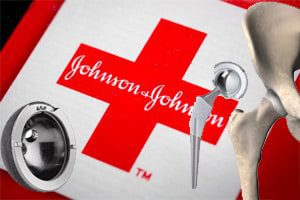
Health care giant, Johnson & Johnson, is facing about 11,500 lawsuits over its controversial metal-on-metal ASR hip replacement device that is manufactured by its DePuy Orthopaedics unit. Now, Johnson & Johnson is in talks to pay in excess of $3 billion to settle the litigation. Five people familiar with the matter told Bloomberg.com that the […]
 Health care giant, Johnson & Johnson, is facing about 11,500 lawsuits over its controversial metal-on-metal ASR hip replacement device that is manufactured by its DePuy Orthopaedics unit. Now, Johnson & Johnson is in talks to pay in excess of $3 billion to settle the litigation.
Health care giant, Johnson & Johnson, is facing about 11,500 lawsuits over its controversial metal-on-metal ASR hip replacement device that is manufactured by its DePuy Orthopaedics unit. Now, Johnson & Johnson is in talks to pay in excess of $3 billion to settle the litigation.
Five people familiar with the matter told Bloomberg.com that the drug maker is looking to pay more than $300,000 per each case, which would be more than $3 billion if most of the plaintiffs accepted the terms. In fact, the $3 billion is more than 50 percent greater than the amount discussed previously.
The largest prior similar settlement was in 2001 involving Sulzer AG for $1 billion over its allegedly defective hip and knee devices. That settlement, according to Bloomberg.com was the largest settlement involving hip devices. The five people, who Bloomberg.com noted are not authorized to publicly discuss the negotiations, said that any accord would be impacted by seven product liability trials scheduled between September and January. Johnson & Johnson is looking to resolve its United States cases by early 2014, according to the people.
Metal-on-metal hip implants, as a class, have become the subject of safety concerns. These devices were approved using the fast-tracked 510(k) approval route, which bypassed clinical testing. Now, studies reveal that metal hip replacements tend to fail more often than other implants.
The hip implants were created for greater durability and longevity and with the intention that the seemingly stronger components would be far superior over their more traditional counterparts constructed with plastic or ceramic elements. In recent years, the metal devices have come under fire for failing at unexpectedly high rates and leaving patients with significant and, often, life long injuries.
In 2010, DePuy recalled 93,000 ASR devices after it was found that 12 percent of he devices had failed within five years, a considerably high failure rate. Data since has revealed even higher failure rates.
Metal-on-metal hip implants have long raised safety concerns in response to reports that the devices lead to early failure and other complications by releasing metal ions into the patient’s bloodstream and surrounding tissue. We’ve repeatedly written that research has linked metal-on-metal hip implant devices, such as the DePuy ASR, to a number of adverse events such as tissue necrosis, pain at the implant site that sometimes spreads to the groin and back, inflammation, swelling, metal poisoning, high failure rates, osteolysis (bone loss), and fluid collection/solid masses around the hip joint. The issue appears to be with the metal used in the construction of the implants, which was touted to last for at least two decades. More and more, reports and research indicate that some patients have required painful revision surgeries just two or three years after original implantation.
On January 17, the U.S. Food and Drug Administration (FDA) issued a Safety Alert acknowledging these risks and issuing new guidelines for all-metal hip patients. The agency advised that people implanted with all-metal devices undergo physical exams, diagnostics imaging, and metal-ion testing, when necessary. In that same alert, the FDA also proposed new, stricter guidelines mandating manufacturers prove their devices are safe and effective through clinical testing, a method known as “premarket approval.”
The device maker has spent nearly $993 million on medical costs and advising patients and surgeons about the ASR recall, Lorie Gawreluk, a DePuy, spokeswoman said in an email to Bloomberg.com. An undisclosed amount was set aside for litigation, and that amount was increased before June 30, she said.
Johnson & Johnson lost an $8.3 million verdict in the first trial over the device and won the second case. In the first case, the jury ruled that the ASR was defectively designed, that DePuy appropriately warned of the device’s risks, and that DePuy did not owe punitive damages; DePuy is appealing, according to Bloomberg.com.
About 8,000 federal cases have been consolidated in federal court in Cleveland and another 2,000 are pending in the California Judicial Council Coordinated Proceeding. Trials are also scheduled in state courts in San Francisco, California in October; in Hackensack, New Jersey, in October and January; in West Palm Beach, Florida, in November; in Chicago, Illinois in December; and in Los Angeles, California in January.


